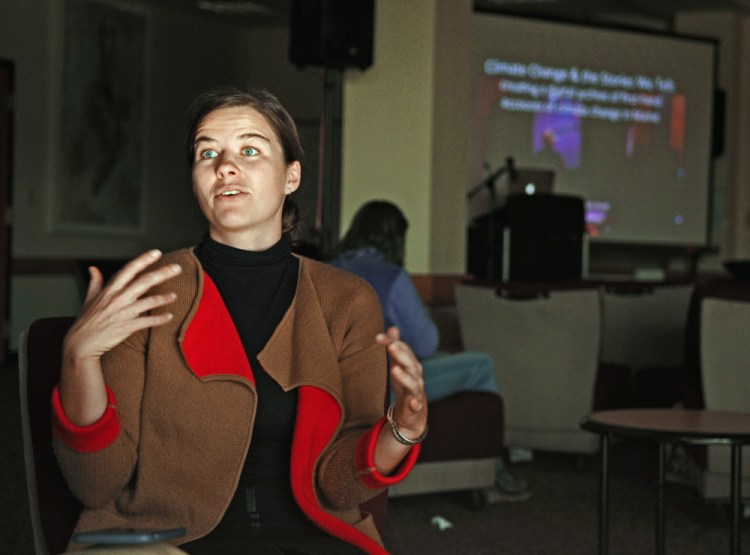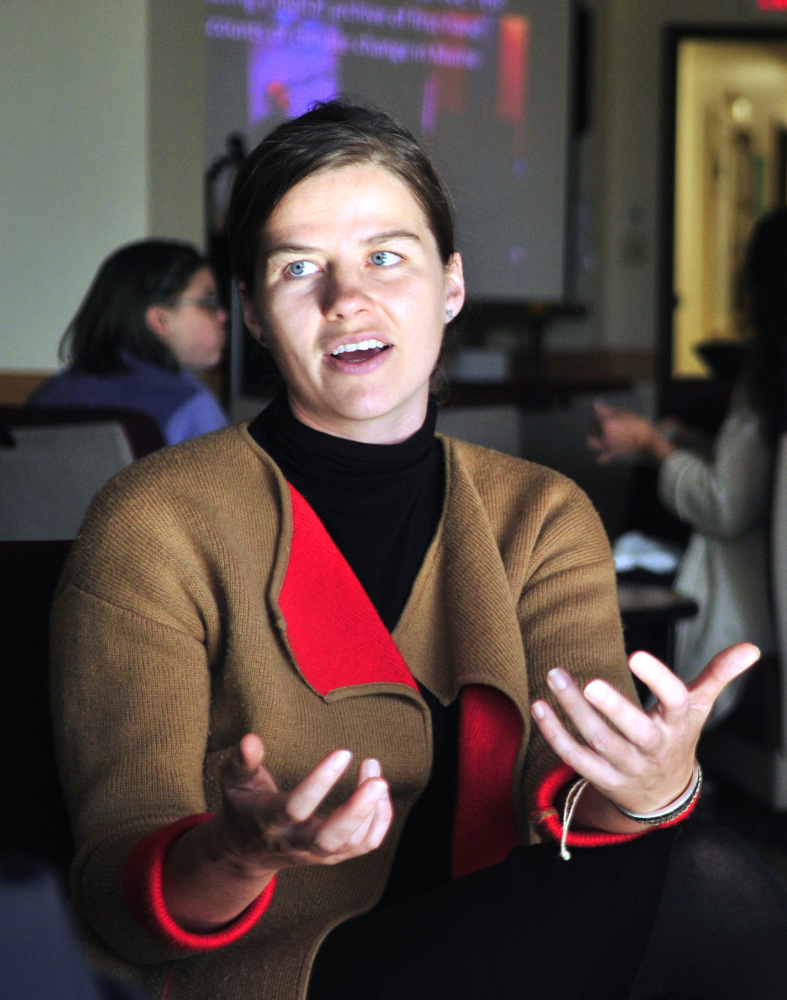AUGUSTA — Climate change is real and it is affecting Mainers, a Bates College expert said Thursday afternoon at the University of Maine at Augusta.
Elizabeth Rush, an author and postdoctoral fellow in the humanities at Bates College in Lewiston, told more than 25 people gathered in the Fireside Lounge at UMA about the problems climate change is causing people in Maine by highlighting a Bates course last year about the subject.
“A lot of the climate change work that I’ve been doing in Maine has been collecting firsthand accounts, though not everyone interviewed would call it climate change,” Rush said before her presentation. “There has been significant environmental change in Maine over the past two or three decades, leaving many of the industries in moments of profound transformation.”
During last year’s Bates College course titled “Climate Change and the Stories We Tell,” students were taught basic interview and digital media skills before spending a week finding subjects and conducting interviews. They spent two weeks editing their stories before launching a map-based web application chronicling their discoveries.
Rush thinks that while not everyone believes in climate change, it’s important to recognize that these environmental changes are causing Maine’s identity to shift.
“The lobster fishery is moving further and further north, maple syrup season is starting earlier and last year was a disaster for the winter recreational sports season,” Rush said. “It’s important to think about how we cope with (the changes).”
The project, Rush said, helps create a common ground and a first-person account of the effects of climate change on everyday Mainers. Rush said some people may brush the changes aside as flukes or isolated events, but mentioning the industries in Maine that are changing makes it seem like less of a fluke and more of a widespread phenomenon.
“Creating a common ground is really important to reaching hearts and minds,” she said.
Rush said she is concerned about what a Donald Trump presidency will mean for climate change. President-elect Trump has been on record as saying he thought climate change caused by humans was a hoax started by the Chinese, and he has promised to withdraw billions of dollars from a United Nations initiative.
“Well, the guy he might appoint to run the (Environmental Protection Agency) doesn’t believe in it, so I don’t know how you can protect the environment if you don’t believe climate change is happening,” Rush said, referring to reports that Myron Ebell, a climate change skeptic, might be tapped to head that department.
The U.S. and China, she said, are the largest greenhouse gas emitters in the world, so backing out of the Paris climate change agreement would send the wrong message.
“In India in the past week, they’ve been closing schools because being outside is the same as smoking 40 cigarettes in one day, and we’ll have someone in the White House who isn’t even going to work to ameliorate industrial pollution in the U.S. and abroad,” Rush said.
One of the goals of the course Rush taught last year was to improve communication about climate change, because a lot of what people hear or read is “hard science and very jargon-heavy that is difficult for the layperson to understand.”
Some people have a hard time believing in climate change because they don’t like being told that how they’ve been living is wrong, she said.
“There’s a lot of ways in which the climate discourse has really started to try to shame people into believing in it, but that’s not really a progressive way to get people who might be on the fence,” Rush said. “They don’t want to fundamentally change who they are, but there is a lot of work we can do around more effective climate change communication.”
Jason Pafundi — 621-5663
Twitter: @jasonpafundiKJ
Send questions/comments to the editors.




